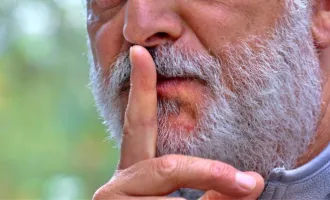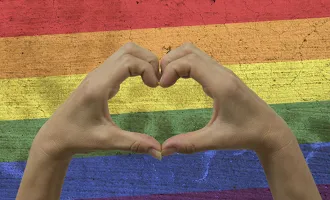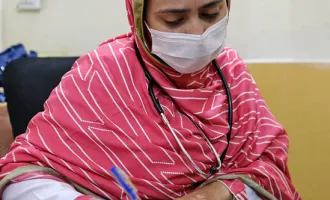Blame Game Won't Solve Gun Violence
A dangerous trend is arising from the mass shooting epidemic we find ourselves — blaming mental illness. This scapegoating diverts attention away from the real culprits behind the horror, namely a lack of gun control and gun reform, and ingrained societal racism.
After the mass shooting in El Paso last year, President Trump held a press conference that completely ignored gun violence and gun control policies as a means for mass shooting reduction by single handedly reducing the cause of mass shootings to one issue: mental illness.
Trump’s statements placed blame on “these sick people” and those “mentally disturbed.” Senator Ted Cruz made similar comments a few days prior while visiting El Paso, where he also directly linked the occurrence of mass shootings to people with mental illness.
Blaming mental illness dismisses any need for protective laws, stricter gun regulations, and adequate mental health reform. By proposing that the reduction of mass shootings don’t require new laws, but instead require a confrontation with mental health, politicians downplay all other contributing factors to the tragedies that happened in Gilroy, El Paso, Dayton, Chicago and the other 246 mass shooting incidents of 2019. The stigmatizing accusations like those made by Trump and Cruz directly account for why so many people delay seeking care when mental health symptoms do arise.
Although mental health seems to be the scapegoat for the pervasiveness of mass shootings across America, people with serious mental health illnesses are more likely to be the recipients of violence rather than the perpetrators.
Estimates show that only about 4% of criminal violence can be directly linked to mental illness. And when severely mentally ill people do act out violently, it’s rarely lethal. This overblown correlation between violence and mental health illness increases stigmatization while reducing public support for policies that benefit those with mental illness.
We need to move away from a system that stigmatizes individuals and instead create a system that empowers recovery and sets up policies to facilitate this very real public health issue.
The media also continues to place a disproportionate emphasis on these unsubstantiated reports of increasing rates of violence and mental health.
The over representations indicate how statements like those made by Trump and Cruz influence misleading connections between mental illness to violent acts.
On Aug. 8 2019, following the El Paso mass shooting, Speaker of the House Nancy Pelosi sent a letter to President Trump requesting that the Senate reassemble to combat “terrorism of white supremacy and gun violence.”
In response, Senate Majority leader Mitch McConnell ignored her plea by refusing to call the Senate back to add any new gun legislation.
His reasoning was that too many previous failed attempts to reach a bipartisan consensus on gun reform left little hope for a decision at that time.
He instead prefered to deal with potential gun control legislation during the following month’s meeting in September.
To the politicians who are too far removed from the threat of gun violence to be caught in a mass shooting event: imagine you were just like everyone else — someone who goes to the grocery store, movie theatre, church, school or city fair.
Try reflecting on how you would feel having to wonder whether going out was worth risking your life.
Think of the anger you would feel toward those with the power to save you if you were caught in the wrong place at the wrong time.
Imagine that you became yet another statistic, another mourning event, another casualty, another step closer to that unknown quota line where finally, change will happen.
Let’s lower that casualty line, come to a bipartisan agreement, and stop cloaking the gun control elephant in the room as the scapegoat of mental health illness.
This election is a moment to take time and really think about which candidate will represent the future you want.



